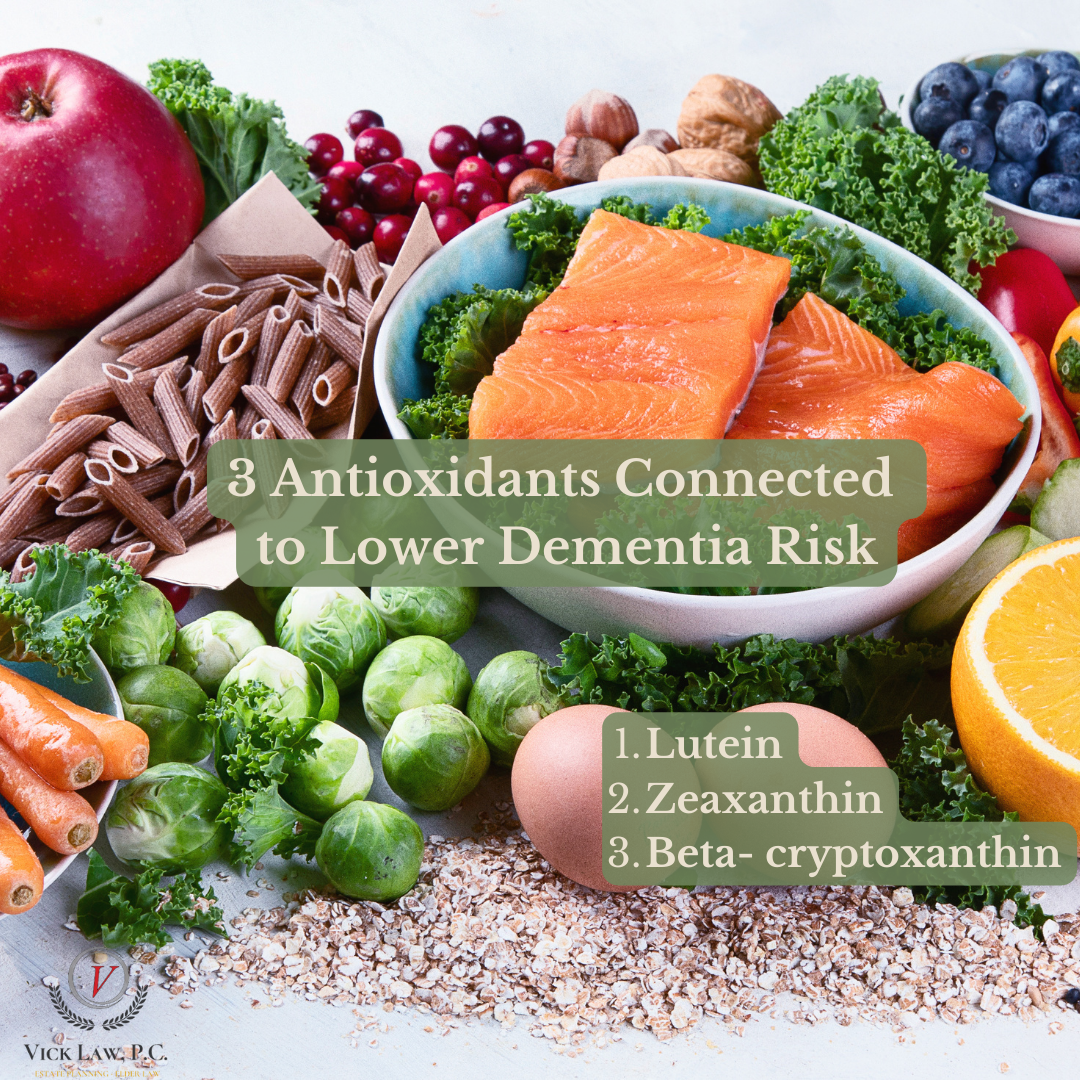Can antioxidants lower dementia risks? Among the more than 7,200 adults — age 45 and older — who participated in a recent study, those with higher levels of three key antioxidants in their bloodstream when the study began were less likely to have developed dementia when they were tested an average of 16 years later.
Money Talks News’ recent article entitled “3 Antioxidants Linked to Lower Dementia Risk” reports that the study results were published in Neurology, the scientific journal of the American Academy of Neurology. They suggest that eating some specific foods might help your body get the antioxidants that could keep dementia away.
In a press release, study author May A. Beydoun of the National Institutes of Health’s National Institute on Aging in Baltimore says, “Antioxidants may help protect the brain from oxidative stress, which can cause cell damage.”
These antioxidants were cited in the study and the foods that will help your body obtain them:
- Lutein. In addition to lutein’s role in possibly keeping dementia at bay, this carotenoid has been associated with other health benefits, especially for the eyes. It is believed to have anti-inflammatory properties. Get lutein in green, leafy vegetables and other foods. Consider adding any of the following to your diet: kale, spinach, fresh parsley, celery, broccoli, lettuce, green peas, Brussel sprouts and summer squash.
- Zeaxanthin. This carotenoid is another antioxidant that’s been linked to better eye health, such as lowering your risk of age-related macular degeneration and cataracts. Similar to lutein, it also may help decrease your risk of heart-related issues, such as coronary heart disease and stroke. Some good sources of zeaxanthin include yellow corn, orange pepper, orange juice, honeydew melon and mango.
- Beta-cryptoxanthin. This carotenoid is commonly found in fruit, as well as in human blood and tissues. Beta-cryptoxanthin has functions vital to human health, such as helping in cell-to-cell communication and serving as a precursor of vitamin A. It’s found in oranges, papaya, tangerines and persimmon.
While the study findings are encouraging, they don’t definitively show that eating these foods and obtaining these antioxidants will reduce your risk of dementia. For example, the study authors warn that antioxidant levels were based on a single blood sample. As a result, it’s possible the test might not have reflected the level of antioxidants in a study subject’s blood over a lifetime.
Reference: Money Talks News (June 10, 2022) “3 Antioxidants Linked to Lower Dementia Risk”


